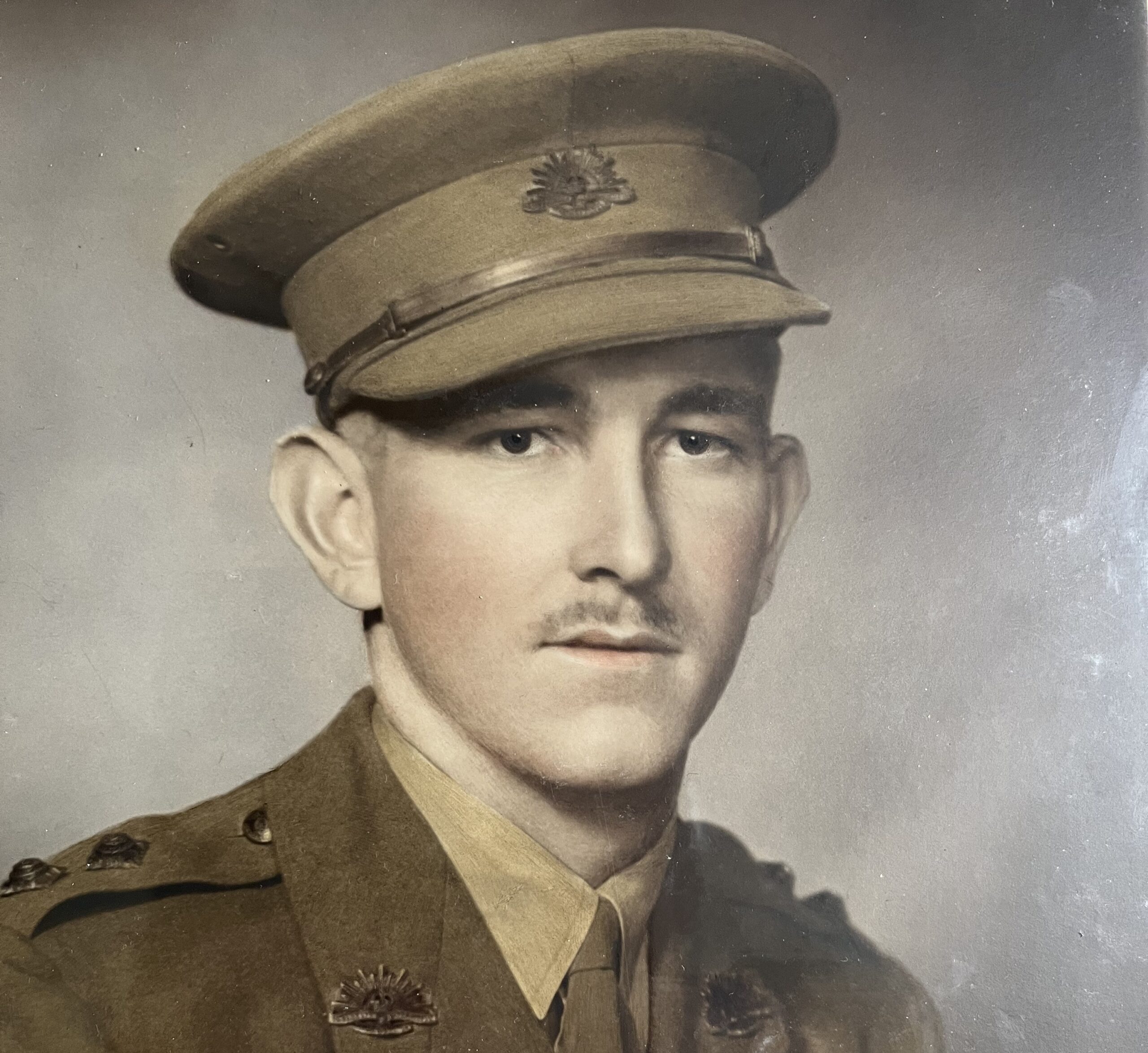
Nicholas O’Donohue & Co ties to war service hero
George Francis (Frank) Lynch (1915-1996), the youngest child of Thomas Lynch (1869-1932), schoolteacher, and Susan Elizabeth Lynch (nee Paine) (1877-1957) was born in Heathcote. Before the war, Frank was a solicitor with the Melbourne law firm, O’Donohue & Brew in the Capitol Arcade, Swanston Street, Melbourne where his brother-in-law Nicholas O’Donohue, was senior partner.
Frank Lynch began his army career in 1939 as a part-time reservist with the 112 Field Battery of the 15 Field Brigade. He was trained at the Brigade Depot, Balcombe Army Camp, Mount Martha and the Artillery Training School, Seymour. He rose to rank of lieutenant.
In July 1941, Lieutenant Lynch was called up for full-time duty with the 2nd AIF and was one of the 56 gunners and officers who formed the 16 Army Field Regiment (16 AFR) at Trawool outside Seymour. Between May and December 1942, the Regiment undertook desert warfare training at Tamworth, Gunnedah and Narrabri NSW. Between January 1943 and November 1944 16 AFR was engaged in the defence of Western Australia against a threatened Japanese invasion. When that threat receded, the regiment was moved to the Atherton Tablelands, Queensland for jungle warfare training. The war ended before 16 AFR could be deployed for operational service and was disbanded on 13 October 1945.
On 29 July 1945, Lieutenant Lynch was notified that he was to be transferred from 16 AFR to the Australian Army Legal Corps (AALC) in Melbourne and attached to 34 Infantry Brigade for the post-war occupation of Japan. He was promoted to the rank of Temporary Captain. 34 Infantry Brigade Headquarters moved temporarily to Morotai in the Netherland East Indies in late October 1945 on its way to Japan. On Morotai, Captain Lynch was one of a small team of army lawyers engaged in the conduct of war crimes trials against Japanese soldiers taken prisoner following the surrender of Japanese forces in August 1945.
In February 1946, 34 Infantry Brigade sailed to Kure, Japan about 23km from Hiroshima where the British Commonwealth Occupation Force (BCOF) had established its supply and administration headquarters. Captain Lynch and another AALC lawyer were responsible for the delivery of all legal services on behalf of the BCOF in the Hiroshima prefecture.
Captain Lynch returned to Australia and to legal practice in July 1946 with his old law firm, O’Donohue & Brew. That firm still operates as Nicholas O’Donohue & Co. In 1957 he purchased a legal practice in Kerang in Northern Victoria and relocated there with his young family. He left Kerang in 1975 when he moved to the Mornington Peninsula, eventually retiring to Brighton in the early 1990s.
Captain Lynch’s service with the AALC was unique: he appears to have been the only army lawyer to have participated in the trials of alleged Japanese war criminals and to have been part of the BCOF occupation of Japan. The war crimes trials and Australia’s participation in the occupation of Japan were critical post-War foreign policy initiatives as Australia began to assert itself as a sovereign nation and a Pacific power. Probably unwittingly, Captain Lynch found himself in the vanguard of both.
Author: Dr. John Adrian Lynch, Lawyer & Historian
The content of this article is intended to provide a general guide only. You should seek advice for your specific circumstances.

